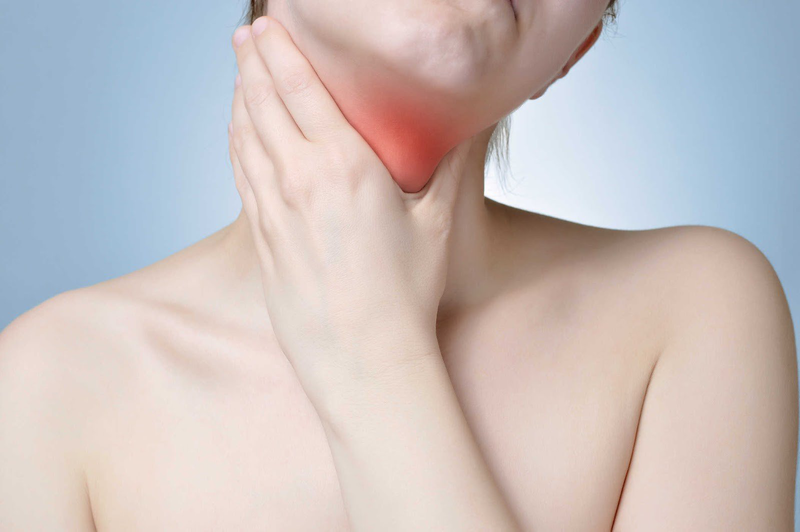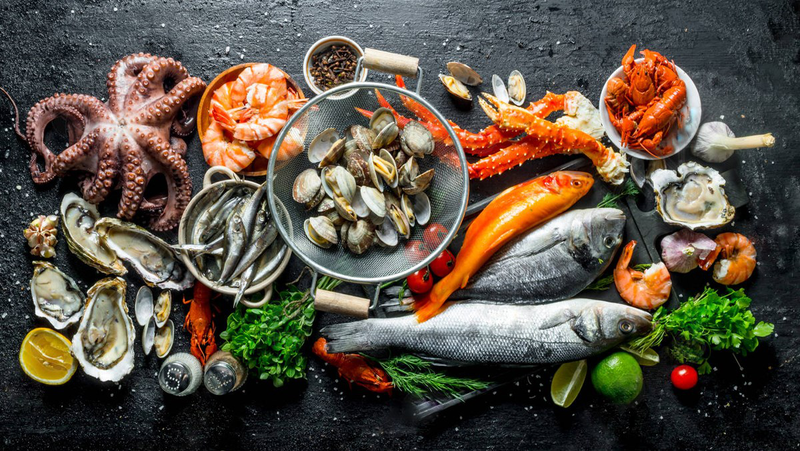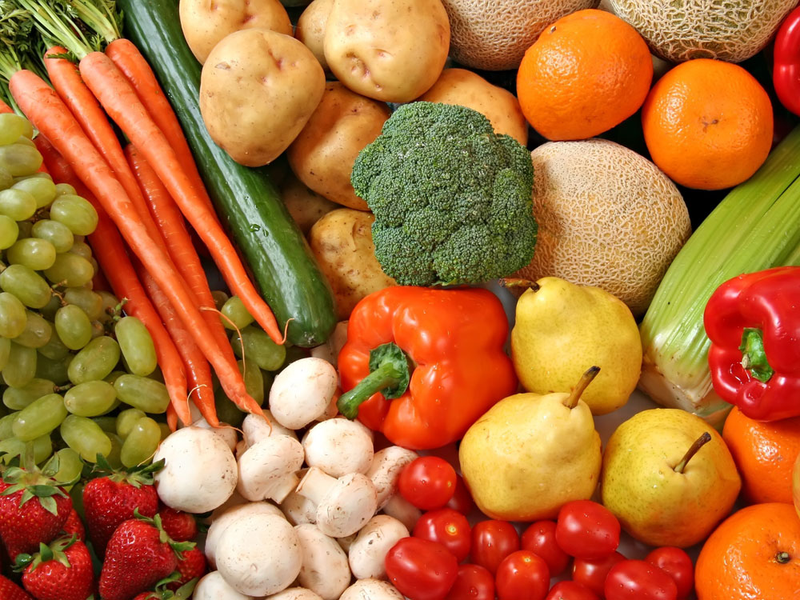After undergoing thyroidectomy, patients need to supplement many nutrients to support treatment and recovery after surgery. One of the questions many people wonder is: “What should people with a total thyroidectomy eat? How to build a menu for people with a total thyroidectomy”. The following article will provide everyone with the most useful and specific information.
What is thyroid disease?
The thyroid is an organ located in the front and lower neck, which functions to produce hormones, playing an important role in maintaining health and regulating the function of many parts of the body. Thyroid disease is a condition in which the thyroid gland produces hormones at insufficient or excessive levels.

Thyroid disease is a common disease in many people.
There are two main types of thyroid disease: hyperthyroidism and hypothyroidism.
Hyperthyroidism: A condition in which the thyroid gland is overactive, producing too much of the hormone thyroxine. Symptoms of hyperthyroidism include:
- Fatigue;
- Weight loss;
- Anxiety;
- Rapid heartbeat;
- Excessive sweating;
- Feeling hot easily;
- Changes in menstrual periods;
- Increased bowel movements.
Hypothyroidism: A condition in which the thyroid gland is underactive, producing not enough of the hormone thyroxine. Symptoms of hypothyroidism include:
- Fatigue;
- Weight gain;
- Difficulty sleeping;
- Constipation;
- Dry skin;
- Hair loss;
- Dry joints;
- Difficulty concentrating;
- Depression.
In addition, there are a number of other less common thyroid diseases, such as:
- Goiter: A condition in which the thyroid gland is abnormally enlarged.
- Thyroid adenoma: A benign or malignant tumor that develops in the thyroid gland.
- Hashimoto’s thyroiditis: An autoimmune condition that causes the immune system to attack the thyroid gland.
Foods on the menu for people with total thyroidectomy
After thyroidectomy, the body will no longer be able to produce the hormone thyroxine, leading to hypothyroidism. To compensate for the lack of hormones, patients need to supplement the hormone thyroxine in the form of medication. In addition, diet also plays an important role in supporting the treatment and recovery process after surgery.
Here are some foods that should be on the menu for people with total thyroidectomy that everyone should refer to:
Seaweed
Seaweed is a food that is very rich in iodine, a nutrient necessary for the production of thyroid hormones. Iodine helps regulate many body functions, including metabolism, heart rate, body temperature, etc.
Supplementing iodine from seaweed in the menu for people with total thyroidectomy can help improve the symptoms of hypothyroidism, while also helping to enhance thyroid function. In addition, seaweed also contains many other nutrients that are beneficial to health, including: Fiber, antioxidants, vitamins and minerals, vitamins A, C, E, K, B12, calcium, iron, etc.
Seafood
Seafood is a rich source of protein. Seafood is a source of high-quality protein, containing all the essential amino acids that the body needs. With abundant iodine, protein, vitamins and minerals, seafood is an ideal food for people with total thyroidectomy. Patients should add seafood to their diet, in the form of fish, shrimp, crab, squid, etc.

Seafood should be on the menu for people with total thyroidectomy.
Some seafood rich in iodine:
- Salmon: Salmon is a fish that is very rich in iodine, providing about 160 mcg of iodine per 100 grams.
- Tuna: Tuna is another fish that is very rich in iodine, providing about 150 mcg of iodine per 100 grams.
- Shrimp: Shrimp is a seafood that is rich in iodine, providing about 120 mcg of iodine per 100 grams.
- Sardines: Sardines are a fatty seafood that is rich in iodine, providing about 100 mcg of iodine per 100 grams.
Eggs
Eggs are also a rich source of iodine, providing about 125 mcg of iodine per egg. Eggs are an ideal food to include in the menu for people who have had their entire thyroid removed. Eggs provide protein to the body, while also helping to supplement iodine needed for thyroid hormone production. Eggs are a source of high-quality protein, which helps build and repair body tissues. Protein also helps strengthen the immune system and helps the body fight disease.
Yogurt
Yogurt is a very good food for people who have had their entire thyroid removed. Yogurt contains probiotics, which help balance the digestive system and strengthen the immune system. After thyroid removal, patients may experience digestive problems, such as constipation, diarrhea, bloating, etc. Probiotics in yogurt help balance intestinal bacteria, helping to improve digestive problems. Patients should eat yogurt 30 minutes – 1 hour after meals to help the body absorb the nutrients in yogurt in the best way.
Vegetables
Vegetables provide many essential nutrients for the body, including vitamins, minerals, fiber and antioxidants. Vegetables are a rich source of vitamins and minerals, including vitamins A, C, E, K, B12, calcium, iron, etc. Vegetables provide fiber, which helps aid digestion and prevent constipation.

Vegetables provide essential fiber to aid digestion.
People who have had their entire thyroid removed should eat a variety of vegetables, including:
- Green leafy vegetables: Green leafy vegetables such as kale, spinach, water spinach, etc.
- Cruciferous vegetables: Cruciferous vegetables such as broccoli, kale, cabbage, etc. are sources of vitamins C, K, and folate.
- Vegetables: Vegetables such as carrots, potatoes, tomatoes, etc. are sources of vitamins A, C, K, and potassium.
- Vegetables: Vegetables such as citrus fruits, berries, etc. are sources of vitamins C and A.
Protein
Protein helps strengthen the immune system, helping the body fight disease because people who have had their entire thyroid removed have a higher risk of infections.
The menu for people who have had their entire thyroid removed should include a variety of protein-rich foods, including:
- Lean meat: Beef, chicken, pork, etc.
- Fish;
- Eggs;
- Beans: Green beans, black beans, red beans, etc.
- Nuts: Almonds, cashews, chia seeds, etc.
Things to note
After total thyroidectomy, patients need to pay attention to the following in their diet:
- Limit foods high in saturated fat and cholesterol: Saturated fat and cholesterol can increase the risk of cardiovascular disease, which is a common health problem in people with total thyroidectomy.
- Limit fried foods: Fried foods contain a lot of fat. Instead, you should bake, steam, boil, etc. foods.
- Limit processed foods: Processed foods often contain a lot of fat.
In addition, patients should also pay attention to the following:
- Eat many small meals a day: Eating many small meals a day will help the body absorb nutrients better.
- Drink enough water: Patients should drink enough 2-2.5 liters of water per day.
- Eat slowly and chew thoroughly: Eating slowly and chewing thoroughly helps the body digest and absorb nutrients better.

People who have had their entire thyroid removed should drink enough water every day.
Hopefully the information above has helped readers better understand the foods that should be included in the menu for people who have had their entire thyroid removed. For the treatment and recovery process to be quick, patients need to combine a nutritious diet with regular exercise.





